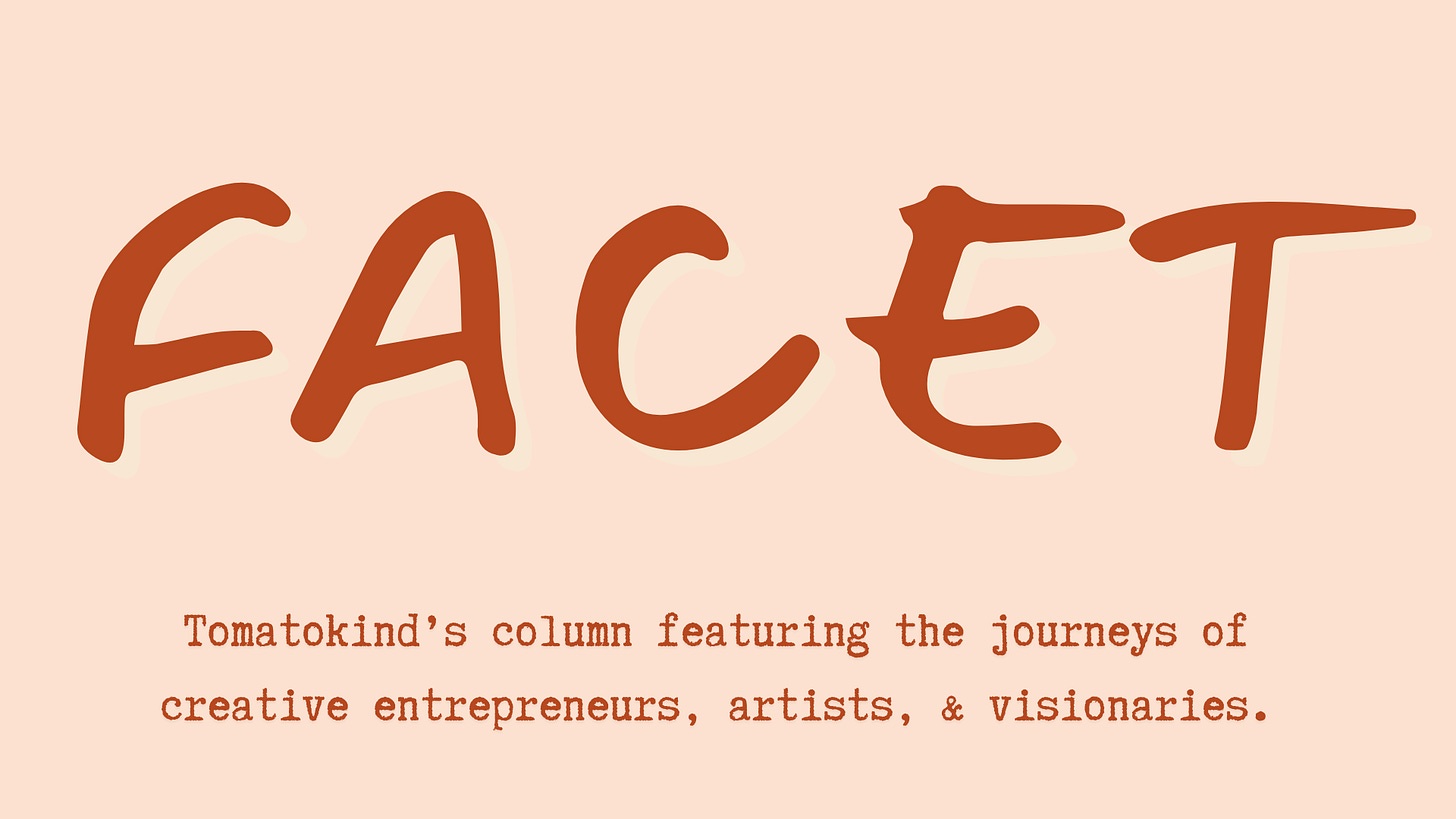Inside the Brilliant Mind of Anna Sale: The Fearless Voice Behind ‘Death, Sex & Money
Interview with Anna Sale - Host of Death, Sex, & Money and Author of “Let’s Talk About Hard Things”
Beginnings in the West
As far back as you are willing to go, what is your life story?
Anna: Ok. I'll tell you the version that is based in the Bay Area. I first lived in California when I came for college at Stanford [University]: 1999 to 2003. I found it totally disorienting when I first got here from West Virginia. It was before [Big] Tech had its first brush with humility…before the first Dot-Com boom. So, there was this [feeling] in the air that you could just go out with cash and join a startup. I was like: ‘I do not understand this at all.’ Then, of course, the Dot-Com crash happened. I graduated just before Facebook showed up, so I was here at a weird in-between time. After that, I left back to West Virginia, and started my media career there in 2005. Then, in 2009, I moved to New York City and stayed there for a period of time, before coming back to Berkeley in 2016 when my husband got a job at UC Berkeley. Now, we live in Berkeley and have two kids in the Berkeley Public Schools.
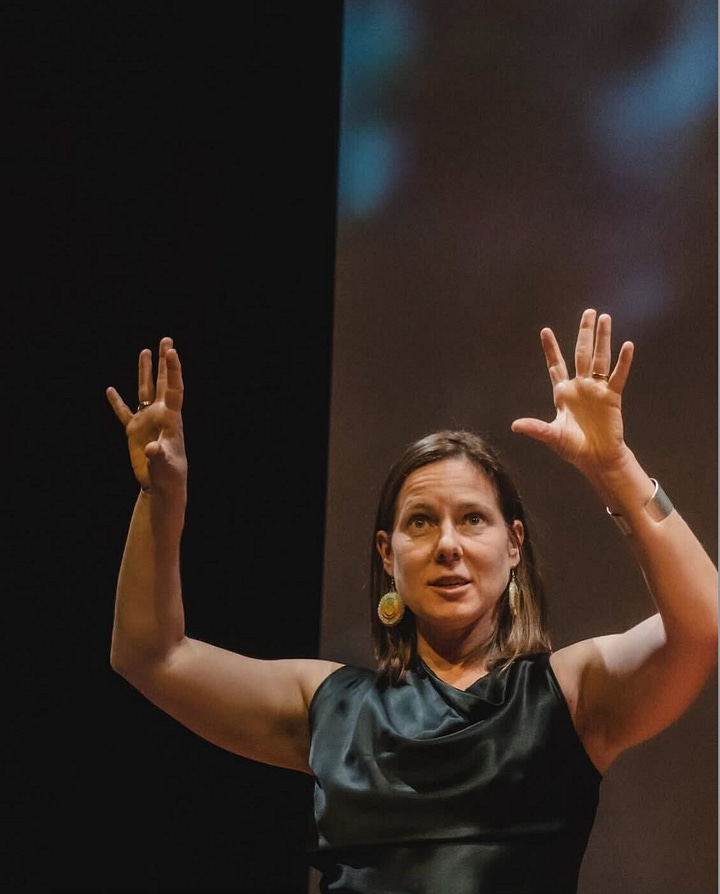
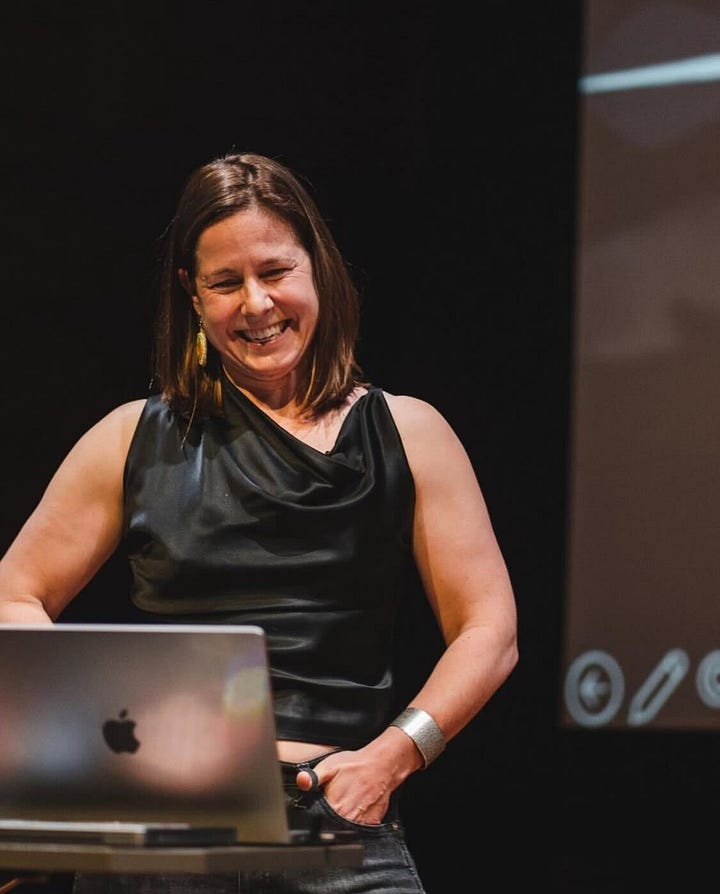
Are there places in the Bay Area that you spend more time this second time around?
Anna: Well, I’ve worked in many different spaces in the Bay, including the Emeryville offices of the Center for Investigative Reporting (also known as Reveal) before they moved to San Francisco near the Mother Jones Podcast headquarters. I also shared some office space with the Investigative Reporting Program at UC Berkeley School of Journalism. I also rented from a hip hop studio in Oakland [during the pandemic] when there was too much chaos in the house to record episodes. The studio was located near the Pixar headquarters at the border of Oakland and Emeryville. It was a strange time. I would have my own set of keys, and would show up at 10am (the studio would be totally empty), and there would be the smell of weed in the hallways from people hanging out and making music late into the night.
Rewinding a little bit, what prompted you to come to college in California in the first place? And, how was that transition from West Virginia?
Anna: I have two older sisters who lived in the Bay for a long time. I remember showing up as a teenager in the mid-90’s (picture Amoeba Records) to visit my older sisters and walking through the Mission [District] and laying around on the grass at Golden Gate Park, declaring to my mom that ‘I found the place where I belong.’ I also knew I was going to leave West Virginia for school. I looked at [schools in] the Northeast and saw a lot of stone walls and gates. When I came out to Stanford, even though it is not the most community-oriented school, there weren’t iron gates. And, I liked that. There was a feeling of openness.
How did you end up spending your time at Stanford?
Anna: Like I said, I just didn’t understand Big Tech (I still don’t really). I was a history major. My job at the time was working for the Martin Luther King, Jr. Papers Project (now called the King Institute). It was such a cool coincidence that I got to work under Professor Clayborne Carson whose life’s work was documenting Dr. King’s life and who was [hand-picked by Coretta Scott King (lifelong human rights activist, amplifier of Dr. Martin Luther King, Jr.’s legacy, and founder of the King Center in Atlanta, Georgia)]. [The King Papers Project was a collection of Dr. King’s most significant texts, published and unpublished]. So, my job in college was looking at telegrams about train reservation and [collecting artifacts] of the movement. That was my experience at Stanford. Every direction you turned, there was something incredible happening. And, it was not always connected to Tech; it was more the feeling of possibility.
Where do you think your interest and passion for history stemmed from?
Anna: My mom is from a farming family in North Carolina. So, picture my granddad with a ledger and ruler and pencil: tracking money in, money out. It was hard to control the risks [on a farm] because everything was in the air, but he was meticulous. And for me, I grew up in West Virginia, where the whole state has been part of a century-long [pattern of] extraction. It is a place where out-of-state business interests largely define the destiny of people who live there. So, what does that teach you? The sense of looking out for one another in the community. But also, I was not raised with the idea that one can ‘make your dreams come true.’ So, in a way, I was magnetized by coming to California and to Stanford. I felt like a student of entrepreneurism, because it did not come naturally at all. [I would look around and] think: ‘That is so cool that you have the nerve! How can more of us have that nerve?’
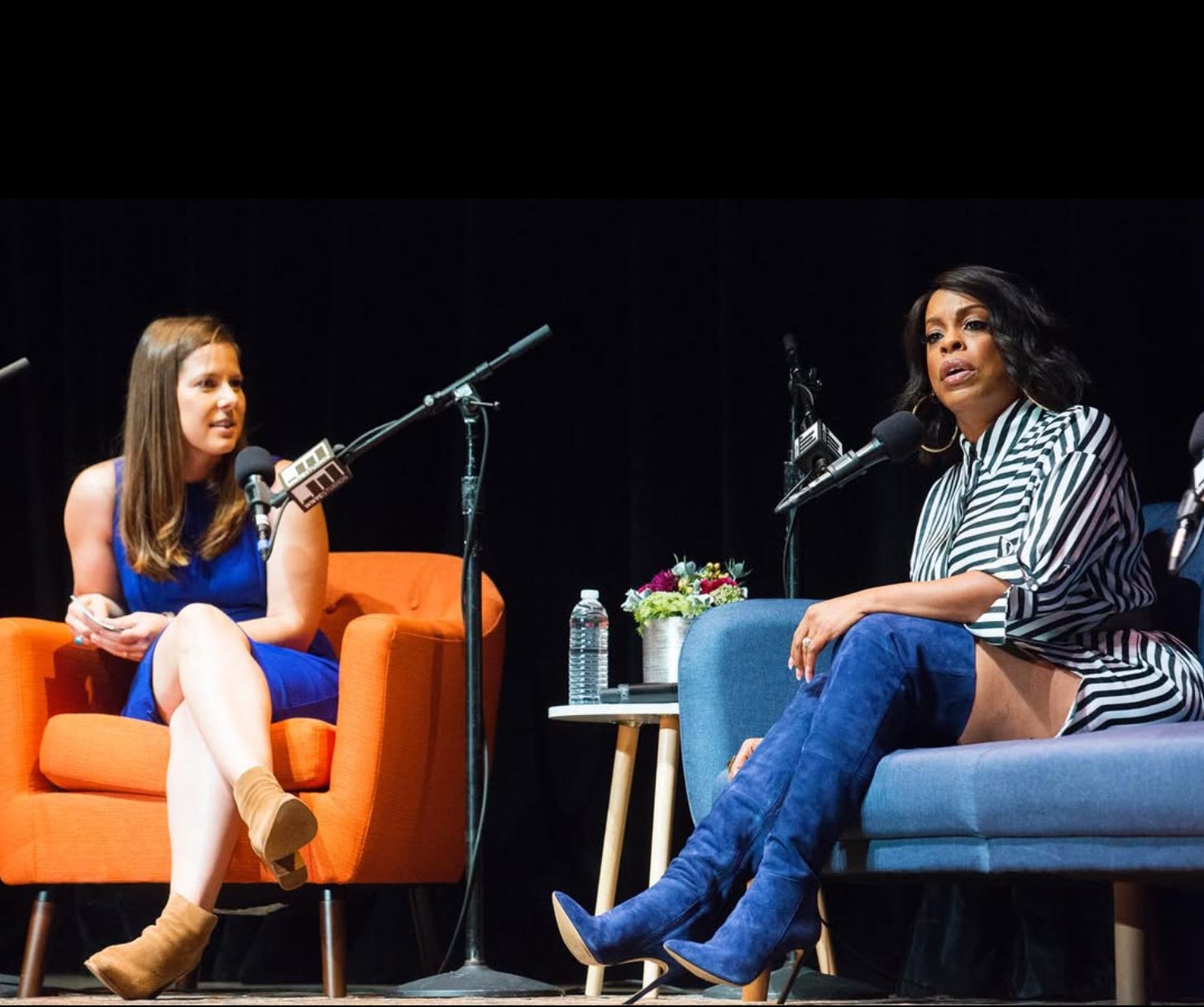
Anna’s Creative Direction
So, how did you come to realize your entrepreneurial and creative capacities?
Anna: I'm not your traditional entrepreneur. I learned this new word….intrapreneur…which I think describes me. It means that I like being a part of institutions. I like having coworkers. I like having direct deposit (for the sake of my own risk tolerance). Then, once I have a base level of security, I have [the capacity] to run with more wild ideas. It helps me to feel that I can be more creatively risky. So, for most of my career, I worked in public media and figured out a way to cover the kinds of stories that I wanted to…but still within that system. That's where my kind of entrepreneurial and creative zest lives: within an institution but in a position where I can do a lot of pushing.
How has community served as a lever or channel to your intrapreneurship?
Anna: There’s a few answers to that. The first way I think about community and my work is in making my podcast [Death, Sex, and Money (DSM) by Slate]. Our show only exists if people opt in to it…if there is demand for it. So, you have to create a feeling - an invitation - that builds the relationship and a virtuous circle with the community. In the context of [DSM], this means featuring our listeners as people we are really curious about and want to share stories alongside; this is in addition to featuring celebrities who people know. So, it is not just that we share stories. It is really being curious about our listeners and treating them with a lot of respect and dignity, and doing something [cool] with the stories they share with us. That is a type of community building.
The other way I think about community is its reaction to technology. I make digital media where people can take it in all by themselves and not have to talk to another human being and [still] feel like they are in a relationship with someone. On the one hand, I think that's great because we can accompany people through periods of isolation. We can make people feel less alone. But, a cultural value I try to impart is that the listening [and consuming] is not enough. We have got to be in it - building the thing - together - and participate in a relational way. Or else, it dies.
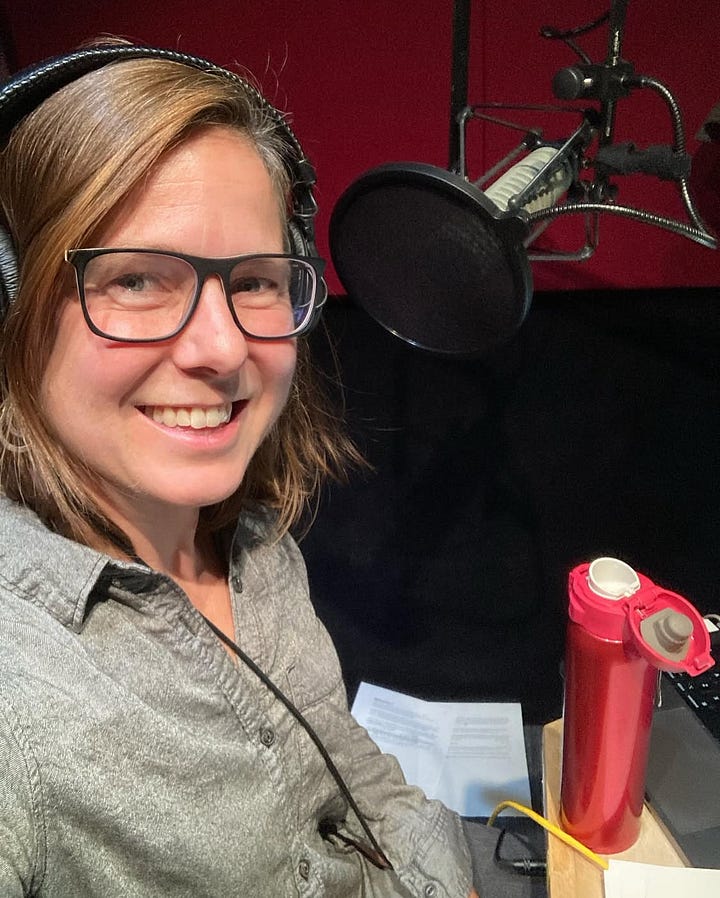
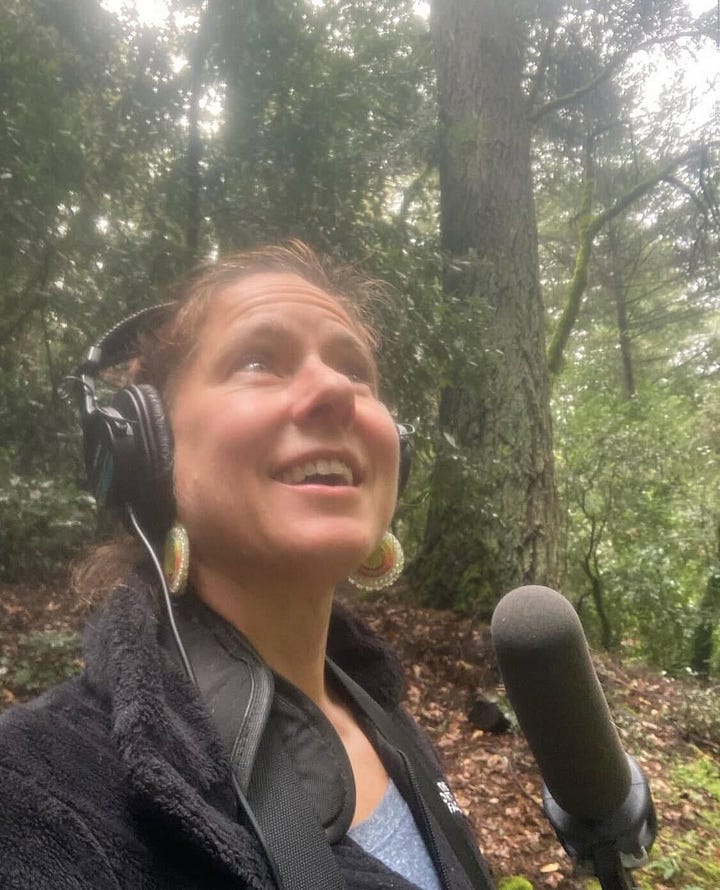
Can you also speak a bit to the origin story of DSM?
Anna: [Before DSM], I was a radio news reporter, covering everything. I was on general assignment at the start and covered politics. When I was covering politics, particularly campaigns, I realized what I liked most was talking with voters about what they cared about, why they were feeling hopeful or anxious, what their experience of living in the country was, and how it would all inform who they were going to vote for. I covered the presidential campaign in 2012 in a ton of swing states, and also - before that - in 2008.
In 2013, I was living in New York, and there was a mayoral election when Bill de Blasio was first elected. At the time, WNYC [a New York Public Radio station] launched a contest looking for internal submissions of new show ideas. So, I came up with a show idea while walking my dog. I asked myself: “What is life really about? What do we talk about in eulogies? What’s the undercurrent of why everything has stakes, and that we don’t talk much about?...” Then, I thought: “Gosh, what if we had a show called ‘Death, Sex, and Money’? And it made me laugh. I thought it was funny, and sort of bold. Then, the question was whether I had the nerve to pitch a show called Death, Sex, and Money. I felt a little punk.
At the time, had you found your confidence and identity in your media career yet?
Anna: Yeah, I knew what I was doing. I knew I could make good radio shows. But also, because I was a conventional news reporter at the time, I was competing with everybody else who was covering politics too. I didn’t use ‘I’ in my stories and didn’t, [for example, reach out] to people to talk about their divorce [and also] share my experience of being divorced. I didn’t do [stories like] that. So, that was the leap. First, I thought ‘is this stuff interesting?’ And then, ‘do I have the courage to use my own - emotional - origin stories to create the motivation for this show? In retrospect, being able to show some of my cards really helped create the feeling on the show of [the community as a whole] just ‘comparing notes about how we're all figuring stuff out, and that there are no silver bullets.’ The truth about life is, once you figure out one thing, something else pops up. So, we might as well have some humility and share about that [in-between] stuff, rather than aspire to have it all locked down.
Death, Sex, & Money…and Beyond
Once you decided you were brave enough to pitch the show, what was it like to actually do it? And, what’s the journey been like creating the show?
Anna: I think the hardest thing during early piloting was [to orient] to the format of a podcast. Coming from the world of radio, there was a moment of realization [in podcasting] that I would be making something that people had to choose to listen to…that it would not just play from the radio of someone’s car. I remember being totally freaked out by this. There could be a world in which no one chooses to press play. And then it would just sit there. Podcasting started in 2005, and our show started in the Spring of 2014. So, there were some podcasts out there already, but we were part of a new era. At the time of starting the show, though, I did not expect any of this.
How was the initial response to the show?
Anna: So, after the show started, we immediately found an audience. That was the moment when I went: ‘Oh wait, this could be the thing.’ It was just a happy fact of history that the timing was so right. I realized then that we could do whatever we wanted, including collaborating with interesting people. We could do live shows on stage in places like the Brooklyn Academy of Music. And, we did! At this time, people were just figuring things out and it wasn’t clear that there was a ceiling. All these new podcasts started launching, and I started seeing diverse ways of storytelling. People were adding fuel from every direction, and asking ‘what if?’
[Later, though]…it was clear that gravity existed. [laughs] Everyone in every industry before podcasting knew that gravity existed, and - thus - podcasting also discovered it too.
What do you feel is the trajectory now?
Anna: Honestly, it’s been this slow decline and contraction of available opportunities for people. We have competition now with sectors of Hollywood that weren't in the mix when public radio-adjacent podcasts exploded. So that's been a bummer in a lot of ways, the biggest being that really talented people - who had pathways to make their stuff and a living - are now finding it very difficult. And, it is not clear what the next business model is. That’s where we are now. I still love podcasting, and I love making our show. But, when I talk to young people who are coming up and who want to make audio, I don’t quite know what to tell them.
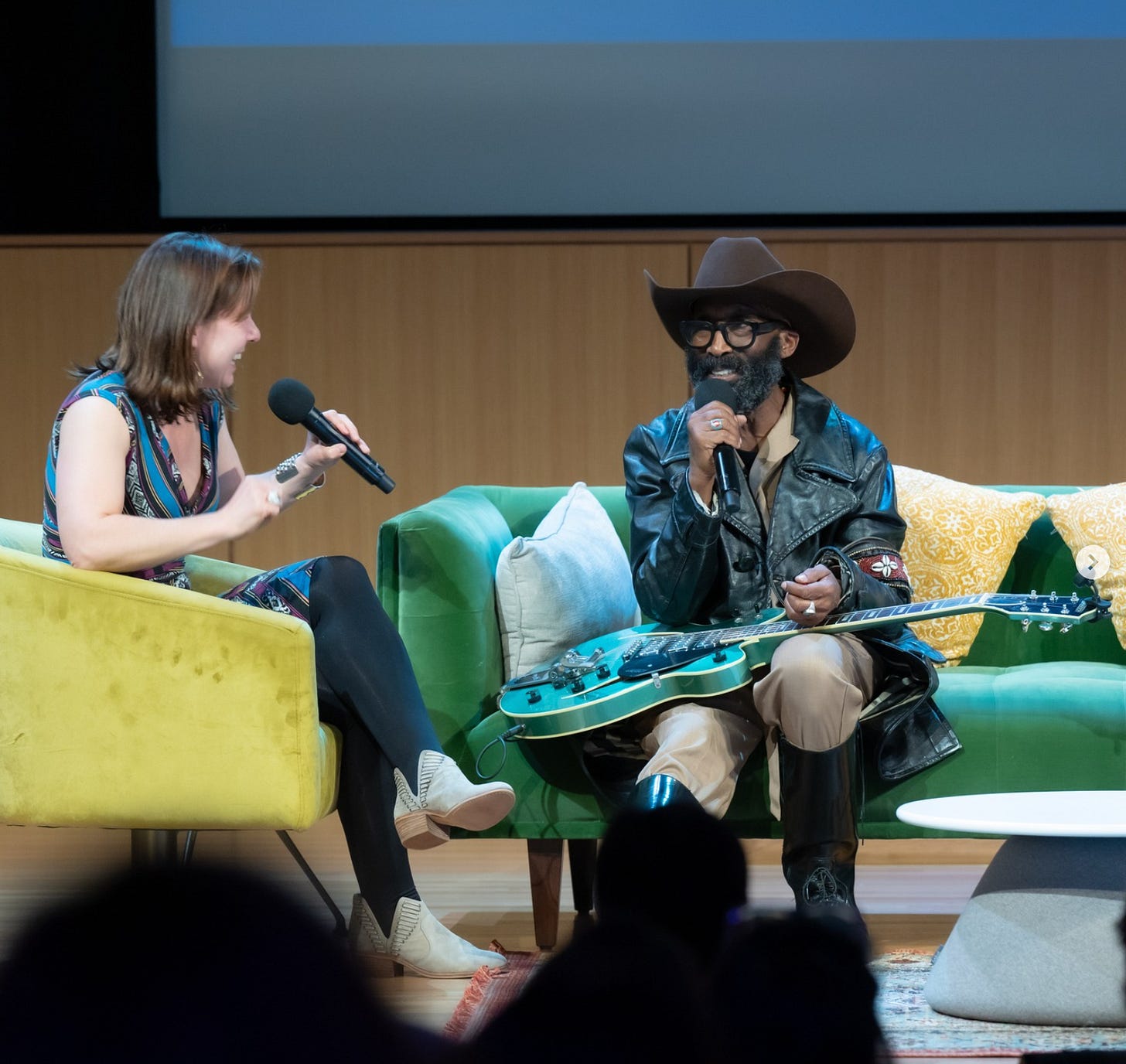
How does this shape the stories you choose to tell - if at all?
Anna: Our show has responded by evolving into more of a conversational style (akin to improv performance) as opposed to thinking too much about [the architecture of each episode] and how to shape it. In the past, there would be a lot more narration to cut out and time spent on making these beautifully sculpted audio stories. (And I love that kind of audio storytelling). But, it also took more time and resources. Lately, we have shifted [the style] a bit, and I think I can achieve similar emotional notes by the way I interview and the way I'm in conversation with people [without as much strategic design]. With this, our show is now able to make episodes more quickly. There is more efficiency on the front side of production.
We ask ourselves: ‘how might we structure this conversation so it takes less editing, but make sure it hits the narrative arc?’ My team is very experienced, and we work seamlessly together to structure these conversations. So, that is how our show has responded.
Can you share more about what your everyday workflow looks like?
Anna: So, we work for Slate now. We used to be hosted by WNYC, but they had to let go of the show because of budgetary reasons. So, last year, Slate bought our show and we moved over. Our team is slightly smaller than before. It consists of me, Anna Slate; our producer, Zoe Azulay, who came with me from WYNC; mix engineer and sound designer, Andrew Dunn (he is also in charge of booking, prepping episodes, and editorial work), also from WNYC; Cameron Drews, longtime Slate producer; and, Daisy Rosario, our show manager. Previously our show manager was WYNC executive producer Liliana Maria Percy Ruis, but she did not come with us to Slate.
From a financial perspective, our production costs are much less now (due to lower management costs), and we are also able to make more episodes than ever before (weekly episodes, exclusive content for Slate Plus members, etc.)
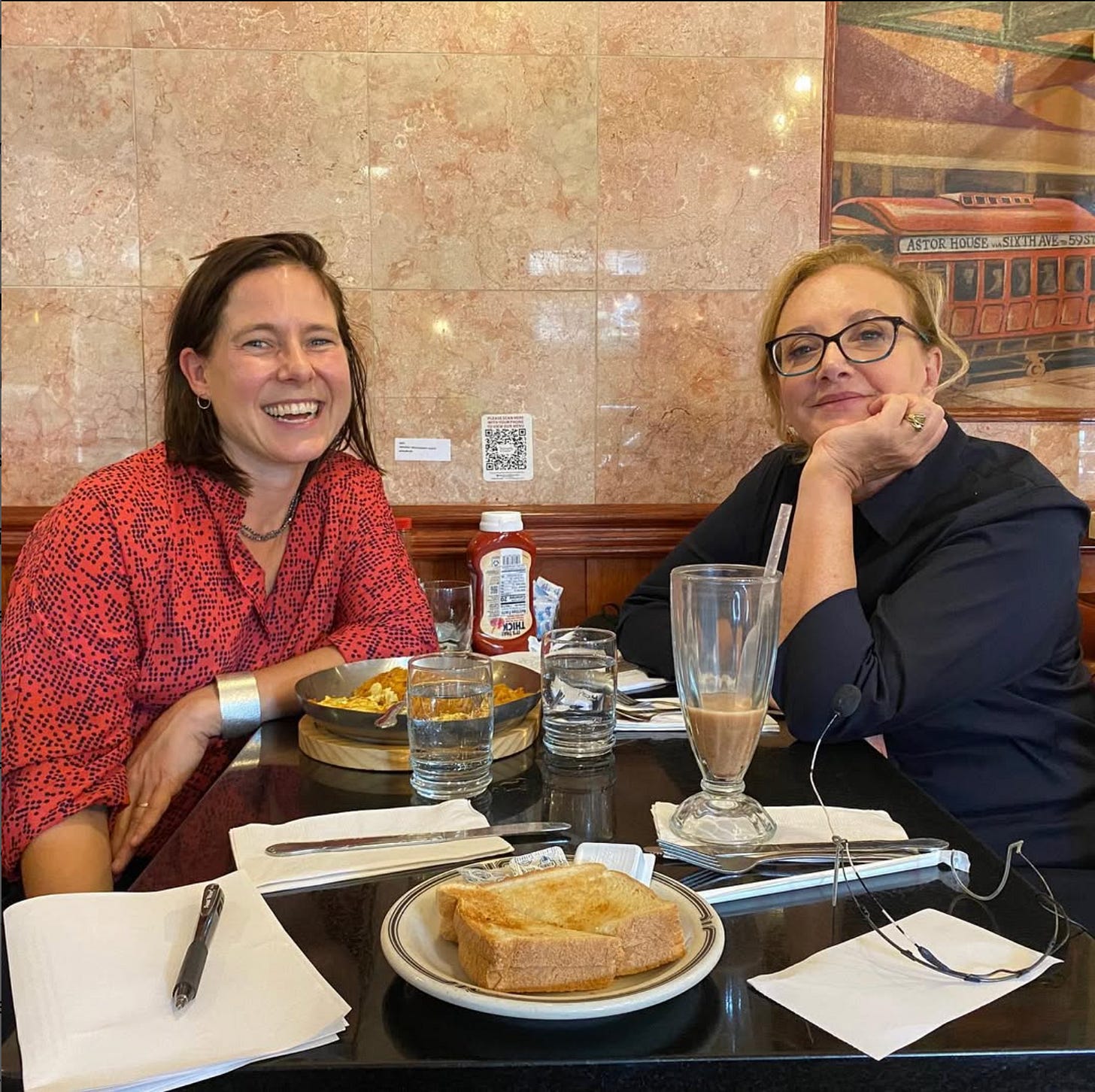
How would you describe the becoming of your interviewing skills? Is it something you feel is innate, or curated through experience…or both?
Anna: I think both. I was always the kind of a person who, in a group of friends, would really dig into one-on-one relationships. That’s just how I would relate - socially. I want to know what is really going on with people. That’s not everybody’s mode, but that is mine. So then, as I entered the world of doing radio news as a daily reporter, [part and parcel] is the ability to find the people you need information from, and forge a connection. In a way, making a 45-minute podcast episode is like making an excellent 92-second radio spot. It takes practice, and it takes not being good for a number of years, and being edited by editors who know more than you do. I had many mentors, and benefited a lot from being in actual newsrooms with them.
Looking back at your career, what are some emotional milestones you can recall?
Anna: What’s cool about our show is that every episode has these little nuggets that stick with me, and I just collect those. When I think of emotional milestones, it makes me think more of those questions I asked [myself] early on: ‘Can I make the thing? Can I invent a show? Can I host a show? Do I have the courage to fill up that space, to expose the parts of myself that aren’t good…the parts that are less appealing?’
And, as I was making the show and feeling really proud of it, I also became pregnant - actually went on maternity leave…twice - and questioned my identity and relationship with my work all over again. I also signed my book deal after having my first baby. And, it was really hard to write a book while caring for a newborn. And then, I had a second baby. So, it has all been a matter of figuring things out. A more recent emotional milestone is the feeling of weathering so many years of podcasting - continuously. Right now, I am thinking: ‘Oh my gosh. What luck? What a gift that this gets to be the way I earn money.’
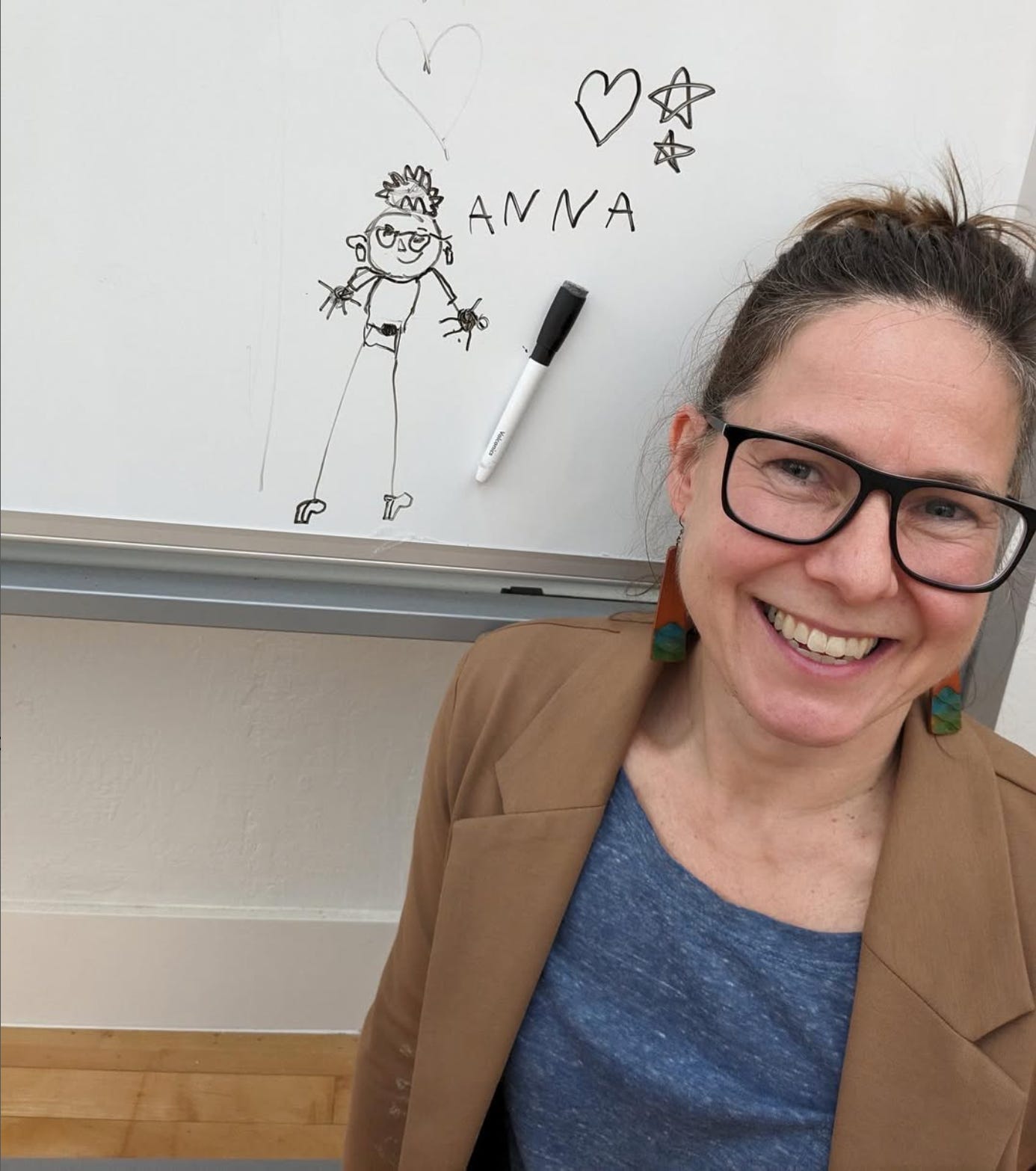
With the full life that you live and also the expansiveness of the podcast, how do you set boundaries and nurture your creativity?
Anna: I have a new matrix for this, actually, that I came up with on the plane last week. As an entrepreneur, you learn that - if you come up with an idea, you can most learn to figure out how to execute on it. So, when you have a good idea, you then put a lot of pressure on yourself to execute the idea. It is hard to have a good idea and then resolve that you won’t have time to follow up on it. That feels like a little death.
Sometimes, though, you just have to realize that not everything can live. So, here’s my new matrix for determining which are the truly good ideas (all three must apply):
Is it fun? This is important. People have enough vegetables to eat right now; meaning, there are enough hard truths that people have to swallow in the real world. So, for the moment, I want to do fun things.
Does it create opportunities for other people? I'm 44. I'm in midlife. I've had a lot of incredible opportunities open up for me in my career, so - now - I want to help create more capacity for others.
Does it feel aligned with my most authentic self? I've had a lot of years of feeling a little bit like a weirdo. For example, I live in Berkeley, but I’m from West Virginia and care about rural places. I also spend a lot of time in Wyoming because my husband is a wildlife ecologist. I don't immediately make sense to myself. So, when I [come across something] that feels aligned to me, I am instantly drawn (instead of something else for the sake of some hustle).
That’s my matrix.
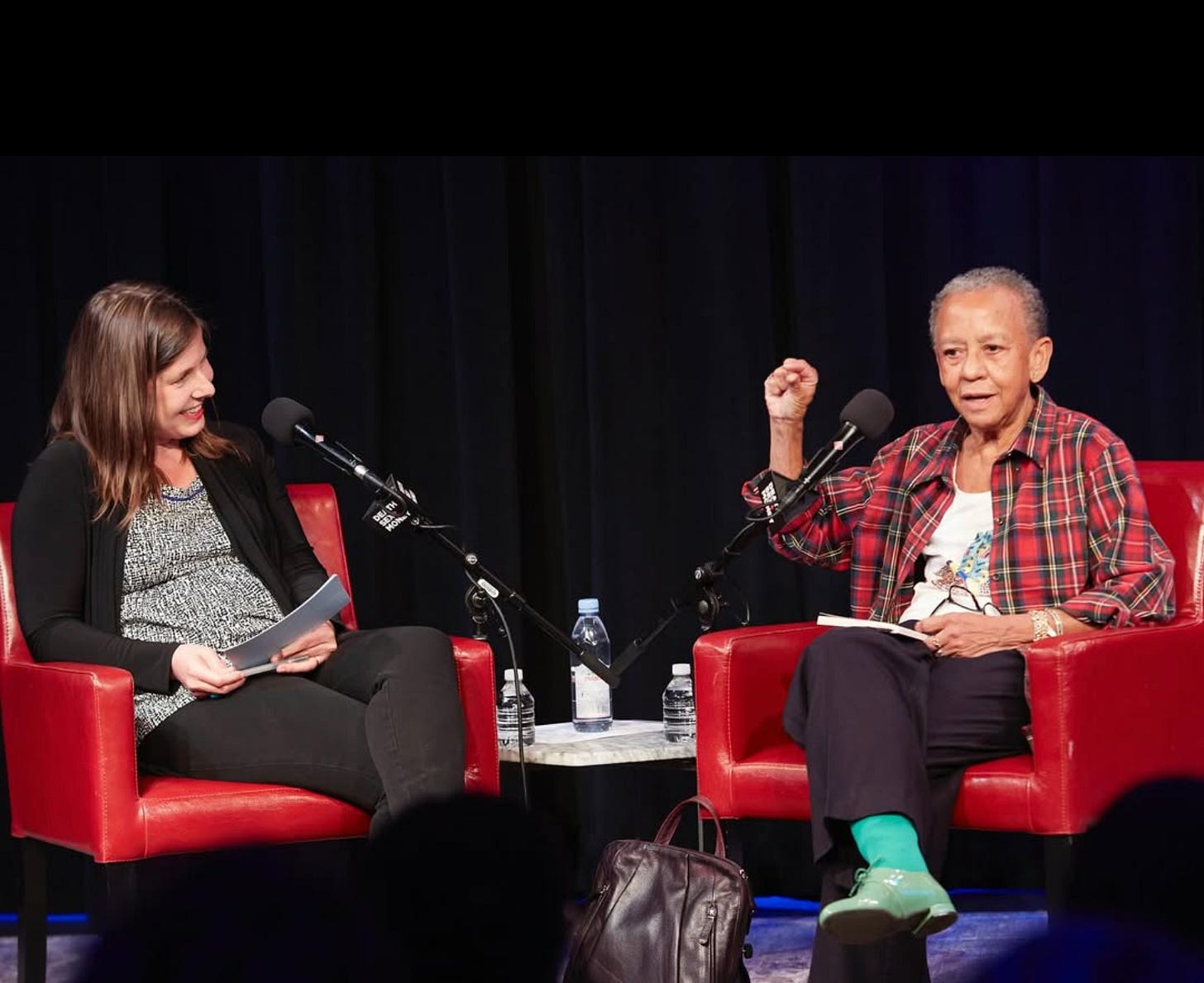
What do you envision for Anna and/or DSM’s growth in the next few years?
Anna: I love making this show with my team. I also love doing live events [Live Episode with Allison Williams at Tribeca coming up on June 11!] The ones I love most are variety shows, where there is some element of kookiness or riskiness. So, that is where I find myself brainstorming. I have also been thinking about doing something cool in-person in the Bay Area related to how we grapple with the hard choices and realities of living here.
I do not have a simple solution, but I do think we need more people in a room together (instead of shouting at each other on social media and in comments pages). I just don't think the status quo is good enough. There is an affordability crisis and a public health crisis, and - also - a lot of people do not have safe places to live. Even people who are doing okay are on the edge of not doing okay. So, I feel that the conversation about where we live could be more gritty, and real, and relational.
With that, we conclude our conversation with Anna Sale (which initially took place on September, 2024 at the charming Belmo Cafe in Berkeley, CA). And, if you have yet to listen to the Death, Sex, & Money show, please take a peek (it is our absolute favorite, and we have grown up with it). Happy community gathering, and see you on the next page!



